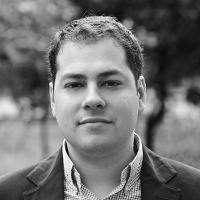OURENSE, Spain — I write these lines in Galicia, in the northwest of Spain, near Láncara, the tiny town where Fidel Castro's father, Angel Castro Argiz, was born on December 5, 1875.
The patriarch of the Castro clan was a rural peasant scourged by poverty who emigrated to Cuba in the midst of war. It was not an act of courage but of economic necessity: another citizen paid him to take his place on the Spanish side in the Cuban fight for independence.
Spain lost that war and lost Cuba. But according to Carlos Márquez Sterling in his Historia de Cuba, Angel Castro was in the unit that killed Cuban independence leader Antonio Maceo, known as The Bronze Titan.
After the war, Angel Castro decided to stay on the island to escape the poverty of his homeland. He bought farms. He became an illustrious landowner. And he stood out for the violence of his business practices, including the exploitation of agricultural workers he imported from Haiti. It’s as if he was taking revenge on those as poor as he once had been—a paradoxical attitude passed on to his sons.
Today in Láncara, Fidel Castro’s aged cousin Victoria López Castro, now in an old folks’ home, remembers him with affection and says the Cuban commander sent money and gifts to his Spanish relatives. Another neighbor in the town remembers him as "a generous man," recalling Castro's last visit to his father's home village.
It was in 1992, invited by the late Manuel Fraga, formerly a minister in the government of Generalissimo Francisco Franco and subsequently the founder of the ruling Partido Popular.
Castro had the opportunity to visit the house where his father was born and was presented with all kinds of entertainment and abundant food from the neighborhood. Fraga, the ex-fascist and Castro the communist, appeared to be best friends forever. Sometimes extremes attract like the opposite poles of a magnet.
And it is true that Fidel sent money to his poor friends and relatives in distant Láncara— as true as the fact he did not do the same with the poor Cubans, whom he kept in poverty, deprived not only of money but of expectations.
Fidel promised Cuba patria o muerte, "homeland or death." The Cubans threw the dice of the revolution and "homeland" came up, but on the second throw there was “death.”
It’s estimated that the revolutionary courts killed more than 6,000 Cubans. The political persecution forced 20 percent of the population into exile, and the repression against opponents was as brutal as it was constant. Fidel pursued entrepreneurs, homosexuals, politicians, religious people, guys with long hair, and other groups deemed unpardonable for the most unsuspected reasons.
Analysts still debate whether the blockade of Cuba was a better or worse way to address the problems caused by the revolution, but the truth is that Castrismo has always been able to win out over the policies directed at it from abroad, whether international isolation or the cordial embrace of the Obama administration. And while Castrismo won, the people always lost.
Several Spanish colleagues have traveled to the island over the years to photograph "Cuba As You’ve Never Seen It,” and mostly they’ve come back with the same pictures. The Castros typically receive Spanish officials from the left—and not only from the left—and let them circulate ostensibly without restrictions. They know how to direct them to the Cuba they want to see, hiding all the misery. And above all, they pay the women. Yes. But about that there is only one condition: silence. “Whores and Silence”: Maybe that should be the title of a book about Castro dictatorship.
Naturally, any profile of the revolution would be incomplete if it did not take into account some positive parts of Fidel’s legacy, from literacy to medical care, and even some willingness of late to talk about openness and freedom with Pope Francis at one moment and Obama the next.
But when it comes to the bottom line for those of us who want above all for liberty and democracy to thrive in Cuba, Castrismo has been a cancer.
Fidel Castro was an egomaniac, cunning and incredibly resilient, and we can’t even celebrate properly his demise, because he has left his regime so tied up that the enemies of the revolution continue having to live in Miami.
Night falls in Láncara and the mayor, a Socialist, meditates about how best to pay homage to Fidel Castro. Sorry to say it’s a sincere desire, a payment for the favors received from this distant godfather of this tiny village. But such is the business of the revolution. Castro, in addition to everything else, became a millionaire; maybe that’s a talent that came with his paternal DNA. Much of the world also pays homage.
Much of the world is also paying homage, and I can understand that. There is nostalgia abroad for a revolution that was supposed to be beautiful and romantic, even if the Cubans didn’t see it that way.
What will not be so easy to explain to our children some day is why the only world leader who has reminded us of the victims of Castrismo with the vehemence the subject merits is a guy named Trump. Something is wrong.
But here’s what we need to keep our eye on. Cuba post-Castro should not be seen as a problem of left or right, or even of good versus evil. The problem is one of freedom.





